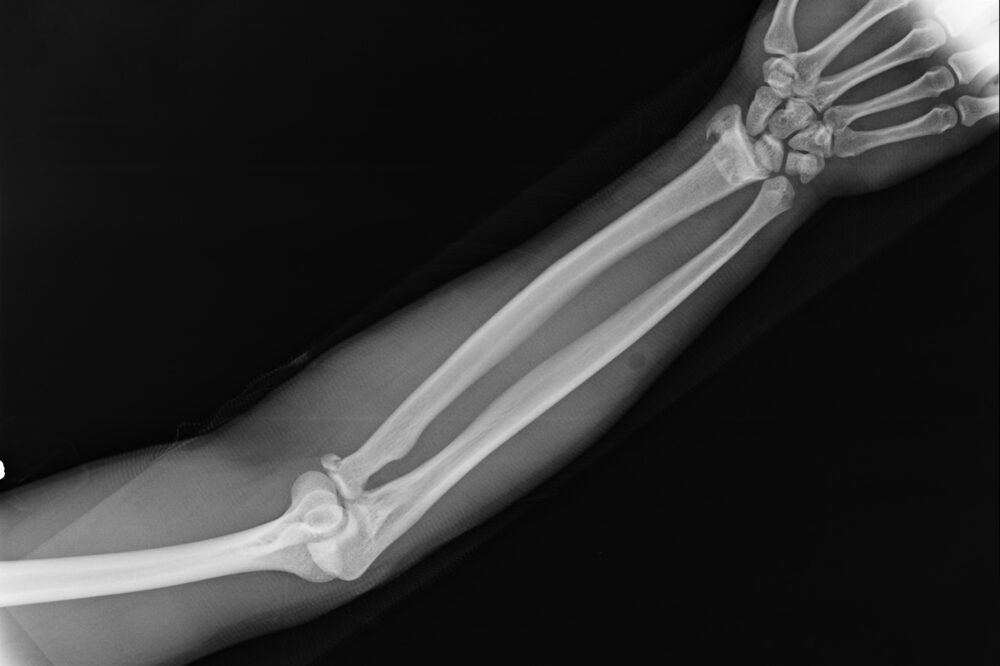Purple urine? Skin like tree bark? An allergy to water? To the patients who have them, these weird diseases, syndromes and conditions are all too real.

16 Weird Diseases You Won’t Believe Are Real


The disorder that makes you believe you’re dead
Zombies are the stuff of science fiction, right? Well, people who suffer from Cotard’s syndrome are convinced they are dead or, at the very least, their internal organs are failing. They may refuse to eat or bathe out of worry, for example, that they don’t have the digestive system to handle food or that water will wash away fragile body parts. Research suggests Cotard’s is strongly related to depression and can be present in people with other brain issues such as dementia, encephalopathy or epilepsy.

The condition that causes you to speak with a foreign accent
People with foreign accent syndrome (FAS) suddenly begin speaking with a noticeable change to their accent that listeners often interpret as “foreign.” This condition is so rare (only 100 cases have been reported since 1907) that doctors originally thought the patients were delusional. But in 2002, scientists at Oxford University discovered that FAS sufferers shared similar brain abnormalities that caused changes to their speech pitch and syllables. The syndrome can also be brought on by a head injury, tumor or stroke, studies show.

The condition that makes you allergic to water
Most of us take showers and go swimming without a second thought. But for people with aquagenic urticaria, casual contact with water causes them to break out in hives. Only 50 people, mostly women, have been diagnosed with aquagenic urticaria since it was first documented in 1964. Much remains unknown about this strange condition, and there is no cure. Sufferers may be prescribed antihistamines and topical creams to help with the itchiness.

The disease that turns your urine purplish red
Vincent van Gogh and the “mad” King George III of England may have had one unusual thing in common: porphyria. Some theorists attribute both men’s wild mood swings to this rare weird disease in which the body fails to produce heme, a molecule involved in the production of the protein hemoglobin. (Hemoglobin carries oxygen to your body’s organs and tissues.) Substances called porphyrins build up to toxic levels in the liver, and when released, they cause urine to turn reddish purple as well as cause neurological problems. Detractors of the theory attribute both men’s mood swings to mental health conditions, such as bipolar disorder.

The disorder that causes you to eat paint and dirt
Named after the medieval Latin word for magpie (a bird notorious for opportunistic eating habits), pica is a disorder that causes people to eat items that are not nutritionally necessary—and often harmful. Sufferers crave and ingest things like paint, clay, chalk, soap, plaster and dirt, as well as more edible raw goods like rice or flour. To be diagnosed with pica, cravings must be continuous for over a month. Symptoms are seen most commonly in pregnant women or children. Some suspect the syndrome is caused by a mineral deficiency, but experts do not agree on the cause or cure.

The condition that makes you feel like you are shrinking
You can probably guess why this condition is named after Lewis Carroll’s famous book. Alice in Wonderland syndrome affects visual perception, and those with the condition feel like they are rapidly shrinking or expanding. They also often believe objects appear smaller than they actually are, according to the Cleveland Clinic. Research has linked the condition to migraine headaches, and coincidentally (or perhaps not), Carroll himself suffered from severe migraines. Some believe his condition may have inspired many of the scenes in the book.

The syndrome that causes you to age seven times faster
At the age of 1 or 2 years old, children with Hutchinson-Gilford progeria syndrome (often just called progeria) begin to show signs of aging, such as slow growth and hair loss. Eventually, they lose most of their body fat and develop wrinkles, making them look decades older than their true age. A rare genetic condition, progeria is named for Greek words meaning “prematurely old.” No cure has been discovered yet, and the average patient will pass away before the age of 15, according to the Progeria Research Foundation.

The disorder that plays loud exploding sounds in your head
People who experience exploding head syndrome claim to hear extremely loud sounds, like gunfire or cymbals, as they fall asleep or wake up—when no one else around them can hear a thing. There is no consensus as to why this occurs, but it is believed to be a sleep disorder brought on by stress or exhaustion. Although most sufferers will hear the sound only once or twice in their lifetimes, medication is sometimes necessary for those with recurring issues.

The condition that makes your hair turn white almost overnight
If your hair abruptly turns white as a result of stress or bad news, you might suffer from canities subita, also called Marie Antoinette syndrome. The condition was coined for the former queen of France, whose hair reportedly turned white the night before her guillotining but most likely did so over the 12 months she was imprisoned. It’s also said to have affected other famous figures such as Barack Obama. A number of other factors could be to blame, including an autoimmune disorder that targets melanin and affects pigment production.

The condition that prevents you from feeling pain
Believe it or not, a small portion of the population would not feel a thing if you pinched, prodded or poked them. They have what is called congenital analgesia, or congenital insensitivity to pain, an inherited genetic mutation that prevents the body from sending pain signals to the brain. While this may sound like a Superman-worthy trait, it’s not good. Sufferers may not realize they’re burning themselves, for example, or they may ignore and fail to treat infections or broken bones. Repeated injuries could also shorten a person’s lifespan, according to the National Institutes of Health (NIH).

The phenomenon that causes you to remember every single day of your life
Ask someone what they were doing on this exact day eight years ago, and most people wouldn’t have a clue. People with hyperthymesia, or Highly Superior Autobiographical Memory (HSAM), however, can tell you exactly what they were doing—to the minute. Hyperthymesia is rare: There are just 62 documented cases of people who can recall every detail about every day of their lives, usually starting from a specific date in their youth. (Interesting fact: The actress Marilu Henner is a famous example of someone with this condition.) Because the condition is so uncommon, experts do not yet have enough information to theorize about a cause or cure.

The genetic condition that turns your tissue into bone
Fibrodysplasia ossificans progressiva (FOP) is in the running for the most common syndrome or disorder on this list: About 1 in every million people has been diagnosed with it, according to the NIH. It is a genetic disorder that transforms soft tissues into bone. Eventually, the disease can cause joints and muscles to stiffen up and fuse together. Like many of the other rare conditions on this list, there is currently no known cure.

The disease that turns your skin into bark
Epidermodysplasia verruciformis (EV), also known as tree man syndrome, is a rare condition that causes bark-like growths to form on a person’s skin. The growths are actually warts, resulting from a rare genetic mutation. Around 600 cases occur each year. Surgery can temporarily remove the growths, but medical researchers have yet to find a cure.

The condition that gives you a rash from cellphones
Imagine getting a headache or breaking out in a rash anytime you step near a cellphone, Wi-Fi router or any other device that emits an electromagnetic field. This condition, called electromagnetic hypersensitivity, has a controversial reputation in the medical community. It was not officially recognized by the World Health Organization until 2004, with the caveat that no link has been confirmed between electromagnetic fields and sufferers’ unpleasant reactions.

The condition that makes you feel other peoples’ pain (literally)
We all have something called mirror neurons in our brains. They’re the strange but scientific reason we sometimes cry when we see someone else crying. But people with mirror-touch synesthesia are believed to have overactive mirror neurons, making their responses much more extreme. The condition causes people to literally feel physical sensations when they watch another person being touched.

The disease that makes it impossible to sleep
Fatal familial insomnia is a rare, hereditary gene mutation that strikes 1 person in a million and makes it impossible for the sufferer to fall asleep. Insomnia is typically the first symptom, followed by anxiety, memory loss and hallucinations, as the lack of restorative sleep takes its toll. Sadly, after a year or more of sleepless nights, most sufferers die.
Why trust us
At Reader’s Digest, we’re committed to producing high-quality content by writers with expertise and experience in their field in consultation with relevant, qualified experts. We rely on reputable primary sources, including government and professional organizations and academic institutions as well as our writers’ personal experiences where appropriate. We’ve gone the extra step and had Ambrose Martos, a fact-checker with 20-plus years of experience researching for national publications including National Geographic Adventure and Popular Mechanics, verify that all facts, studies and quotes are correct. Read more about our team, our contributors and our editorial policies.
Sources:
- Allergy & Asthma Network: “Aquagenic Uticaria”
- American Porphyria Foundation: “About Porphyria”
- Atlantic: “The Medical Mystery of Hair That Whitens Overnight”
- BBC: “The Mind-Bending Effects of Foreign Accent Syndrome”
- Cleveland Clinic: “Alice in Wonderland Syndrome”
- Cleveland Clinic: “Fatal Familial Insomnia”
- Cleveland Clinic: “Fibrodysplasia Ossificans Progressiva”
- Cleveland Clinic: “Mirror-Touch Synesthesia”
- Cleveland Clinic: “Pica”
- Cleveland Clinic: “Exploding Head Syndrome”
- Current Psychiatry Reports: “Cotard’s Syndrome: A Review”
- National Library of Medicine: “Electromagnetic Hypersensitivity: A Critical Review of Explanatory Hypotheses”
- Progeria Research Foundation: “About Progeria”
- Science Direct: “Successful Treatment of Epidermodysplasia Verruciformis”
- Smithsonian Magazine: “Rare People Who Remember Everything”
- WebMD: “What Is Congenital Insensitivity to Pain?”





















